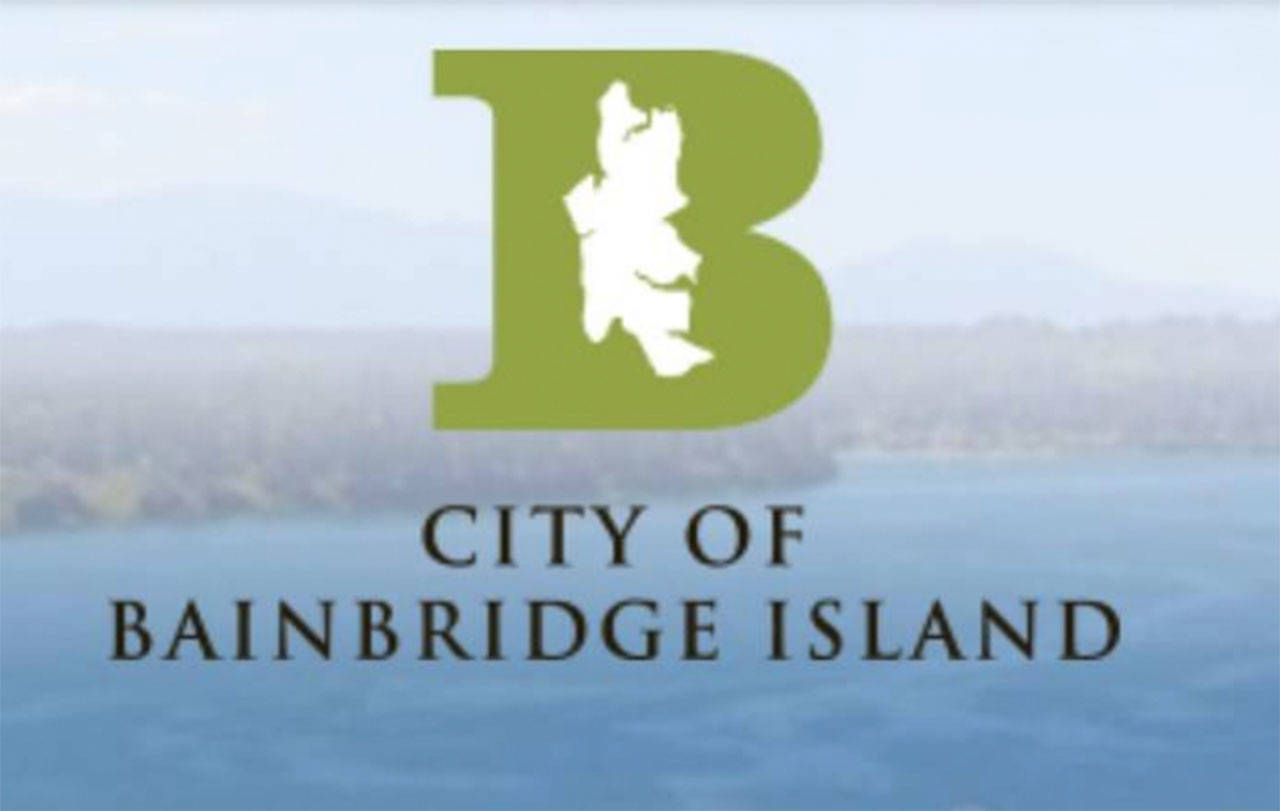A long-anticipated plan was presented to the Bainbridge Island City Council Tuesday by the Climate Change Advisory Committee.
“This is really the culmination of three-years work,” Deputy Mayor Joe Deets said. “The purpose of this committee was to present this report.”
The Climate Action Plan, which received the highest number of votes in the council 2021-22 budget priorities exercise affirmed in June, was presented by chairman Michael Cox. The initial proposed budget includes $300,000 in new one-time funding. Specific actions recommended won’t be publicized until the plan is OK’d by the council.
The council did deliberate on the finances of the plan, including councilmembers Michael Pollock and Kol Medina.
“The more we spend now, the less it will cost us later,” Pollock said. “How do we finance this fight against climate change? If we’re serious about climate change, and I think we are, figuring out how to pay for what we need to do is really important. The cost of actually addressing climate change at a global level is going to take investment, and I don’t really want us to be thinking that we can just do a bunch of low-cost items, and that’s going to take care of the problem.”
Medina added: “I think it’s a great start but I don’t think it’s enough. I’d like to see us put a half-million dollars. If that means we have to cut some other things, I’m OK with that.”
Already completed in the plan is the update of the climate assessment and the greenhouse gas inventory, Cox said. The next steps include having council review and approve the plan, start implementing it through action items over the next year, and monitoring the progress.
CAP is supposed to move the city toward three goals:
- Mitigation – Reduce greenhouse gas emissions by 90% by 2045 compared to 2014 levels with interim milestones of 25% reduction by 2025 and 60% by 2035.
- Adaption – Bainbridge Island is climate savvy and can withstand the impacts of climate change.
- Community engagement – The city inspires community action and partners with local and regional organizations to take meaningful and equitable climate change mitigation and adaptation actions.
The six focus areas of the CAP are energy, transportation, buildings, natural environment, waste and community engagement. Cox mentioned that roughly 18 action items have been identified and would be completed over the next year.
Some of the action items include: working with Puget Sound Energy to green the energy supply, reduce energy demand and prohibit combustible fuels (propane) as the primary fuel for heating in new developments. Other priorities were transitioning city vehicles, such as police cars, to primarily electric and encourage other BI taxing districts to follow suit; as well as creating a list of tree/plant species favored by climate change.
Regarding community engagement, the committee wants to develop a city web presence to ensure information is available to all and prepare the community for outages and provide community assistance during wildfires.
“It’s ambitious,” Cox said. “We have our work cut out, but we really do think we can meet that goal that we’ve established.”
Medina is pushing for a full-time staff member for CAP.
“Having a staff person hired to move this forward is my single-highest priority for next year’s budget,” he said. “Without a staff person dedicated to this, we’re just not going to move this stuff forward. It will be another great piece of work that ends up going on a shelf somewhere two years from now.”
The council will work with the committee to determine the best use of funding included in the proposed budget before potentially approving it by the end of October. Possible public outreach will occur toward the end of the year with implementation of some action items to follow.



